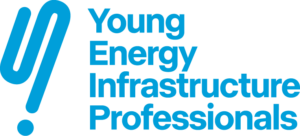
Emerging from our vision of building the next generation of pipeline industry leaders, the Young Pipeliners Association of Canada (“YPAC”) has identified the opportunity to create a purposely-integrated Indigenous Inclusion Program (the “Program”), to respond to a call to participate in reconciliation, and to drive further benefit to our membership. We want to extend our gratitude to Annie Korver, Rise Consulting, for facilitating this work, and for creating the strategy documented below.
By focusing on the why, together we’ll develop the how.
We recognize that Indigenous inclusion is not a foreign concept at YPAC nor is it something that is desired to stand-alone. Through the creation of an integrated Program that compliments our vision, foundational components will be built and tactical elements for inclusion will be woven into the fabric of our organization, complimenting the strategic approach that is developed.
On July 10, our Impact on Industry team will embark on Phase I – Discovery
- Internal assessment
a. Existing practices, policies, procedures and organizational elements (ie. vision, mission, structure, self-identified Indigenous members) affecting Indigenous inclusion and Program development - External assessment
a. Indigenous inclusion practices, policies, procedures of three competing or complimentary industry associations
b. Indigenous inclusion practices, policies, procedures of three leading energy organizations (of which employees are members of YPAC)
In the fall, YPAC will continue with Phase II – Knowledge Building
We will conduct a half-day Indigenous inclusion training for YPAC team members. We are grateful for the support of our Advisor, Deanna Burgart, and YPAC Indigenous Inclusion Co-Chair, Kaella-Marie Earle in this work.
Learning topics to include:
• why this is important
• current events
• history of Indigenous Peoples in Canada
• working in relationship
• reconciliation
• what’s next with inclusion at YPAC
Looking out into 2021, we will engage in Phase III – Development
- Creation of new policies and guiding documents as follows:
a) Creation of YPAC Indigenous Inclusion Committee
b) Statement and letter of commitment (to be authorized by the YPAC Indigenous Inclusion Committee)
c) Review Truth and Reconciliation Commission of Canada 92 Calls to Action for application and use in developing the YPAC Indigenous Inclusion Work Plan
d) Indigenous Inclusion Policy, Strategy, and Work Plan - Updates to existing practices, policies and procedures (including strategies and/or business plans) to including commitments to/activities of focus for Indigenous inclusion
- Organize Program launch and half-day Indigenous inclusion training for YPAC members (learning objectives: why this is important, history of Indigenous peoples in Canada, working in relationship, reconciliation and current events).
As we move into Phase IV – Ongoing Program Management/Implementation, we hope that our work throughout 2020 & 2021 enables YPAC to lead our vision of the future.
What does the pipeline industry of the future look like? YPAC’s Kaella-Marie Earle provides some insights in her “meet the team” profile: https://ypacanada.com/volunteering-committees/meet-ypacs-executive-team/kaella-marie-earle
How you think the Canadian pipeline industry will change by the time you end of your career? The pipeline industry will have executive teams that contain Indigenous leadership. Top down leadership by Indigenous people for Indigenous people is required. It will help develop self-determination principles in our industry and help create higher quality operational change to accommodate Indigenous peoples. The pipeline industry will change the way it hires and trains to be more inclusive of Indigenous people. The pipeline industry will develop and maintain procurement chains with Indigenous peoples. The pipeline industry will lead the country in capacity-building of Indigenous communities through procurement, employment and partnership of Indigenous peoples and communities. The pipeline industry will recognize and address increased sexualized violence toward Indigenous women and anti-Indigenous racism present around operational camps. The pipeline industry will change engineering operations to include Indigenous knowledge and people in critical decision-making processes.